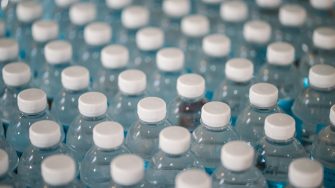The UNSW Centre for Sustainable Development Reform has developed the Plastics Data Checklist and associated Guide to support countries to systematically assess the availability of national data on plastics throughout the lifecycle.
In the context of the global plastic treaty, the Checklist outlines the range of data required to understand the flows of plastics through a national economy and into the environment, enabling countries to understand their readiness for potential treaty commitments.
The global plastic treaty
As we approach the fifth and final round of negotiations for the global plastic treaty, happening in Busan, South Korea in November 2024, pressure is increasing for countries to deliver an ambitious treaty that will effectively curb plastic pollution.
Despite decades of work to reduce global plastic pollution, a persistent lack of data to inform indicators of progress has hindered the global and national decision-making needed to mitigate plastic pollution, encourage sustainable practices, and support circular economy initiatives. The global plastics treaty can end this plastics data gap.
Introducing the Plastics Data Checklist
The Plastics Data Checklist is a critical tool for countries to better understand the national availability of data on plastics across the lifecycle, as required by the UNEA resolution for a global plastic treaty.
Users can follow three main steps to assess their country’s data readiness and develop evidence-based strategies to address data gaps and challenges.
Step 1: Familiarisation with Data Categories
Practioners should familiarise themselves with the nine chosen data categories (Figure 1), which cover the full lifecycle of plastics from production to leakage in the environment, and how they map together.


